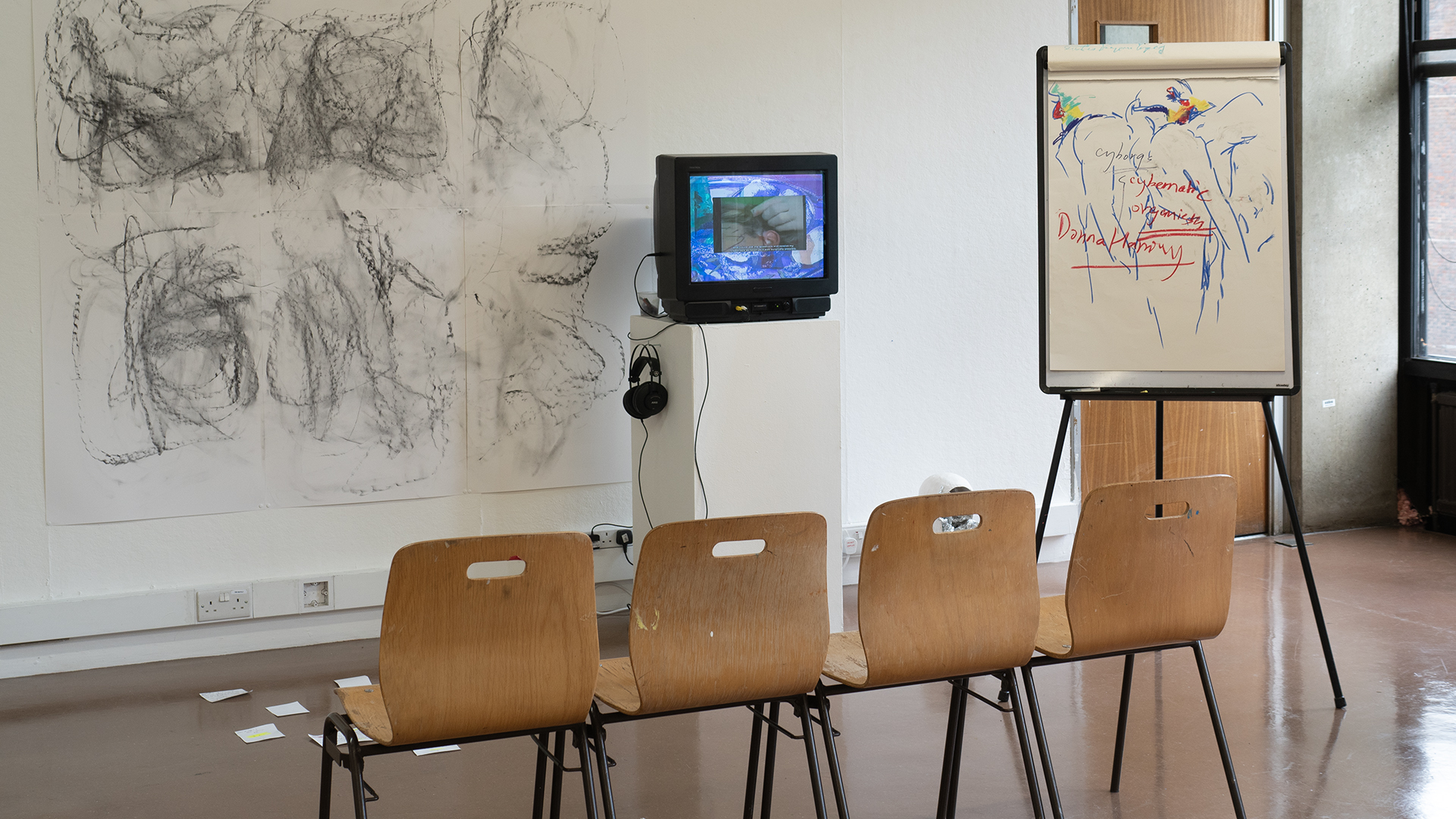When you have made for him a body without organs, then you will have delivered him from all his automatic reactions and restored him to his true freedom.
(Artaud, 1948)
(Artaud, 1948)

The bodies of educators and students are often organised within fixed spaces, positions, and time frames. Classrooms, timetables, and teaching materials all affect, constrain, and sometimes dominate our bodies. It is within such structures that the subjectivities of teachers and students are shaped. And yet, the body is often ignored and separated from cognition within dominant educational discourse and models.
This practice extends the way I have approached presentations over the past two semesters, which have explored the use of body language, diagramming, and mixed media to develop a pedagogic language.
I have developed a lecture performance that promotes discussion of transformation and technology. Referring to the French artist Orlan, who uses the body to cross boundaries through medical and scientific transformations, the performance explores how our bodies are configured within different structures, such as the roles of student and teacher, which are not fixed but are subject to change. This transformation is not only influenced by external structures and environments but also by technologies. We are, as organisms, transforming into a hybrid of machines and humans by invisible impulses such as technology, code, and desire. My research employs Deleuze's concept of the ‘body without organs’, emphasising the body's potential to resist structures and rules.
In the final section, I show this resistance as a body that has lost control of its usual functions. This body explores an unconscious drawing process, and a transformation from speaker to performer.
This practice extends the way I have approached presentations over the past two semesters, which have explored the use of body language, diagramming, and mixed media to develop a pedagogic language.
I have developed a lecture performance that promotes discussion of transformation and technology. Referring to the French artist Orlan, who uses the body to cross boundaries through medical and scientific transformations, the performance explores how our bodies are configured within different structures, such as the roles of student and teacher, which are not fixed but are subject to change. This transformation is not only influenced by external structures and environments but also by technologies. We are, as organisms, transforming into a hybrid of machines and humans by invisible impulses such as technology, code, and desire. My research employs Deleuze's concept of the ‘body without organs’, emphasising the body's potential to resist structures and rules.
In the final section, I show this resistance as a body that has lost control of its usual functions. This body explores an unconscious drawing process, and a transformation from speaker to performer.